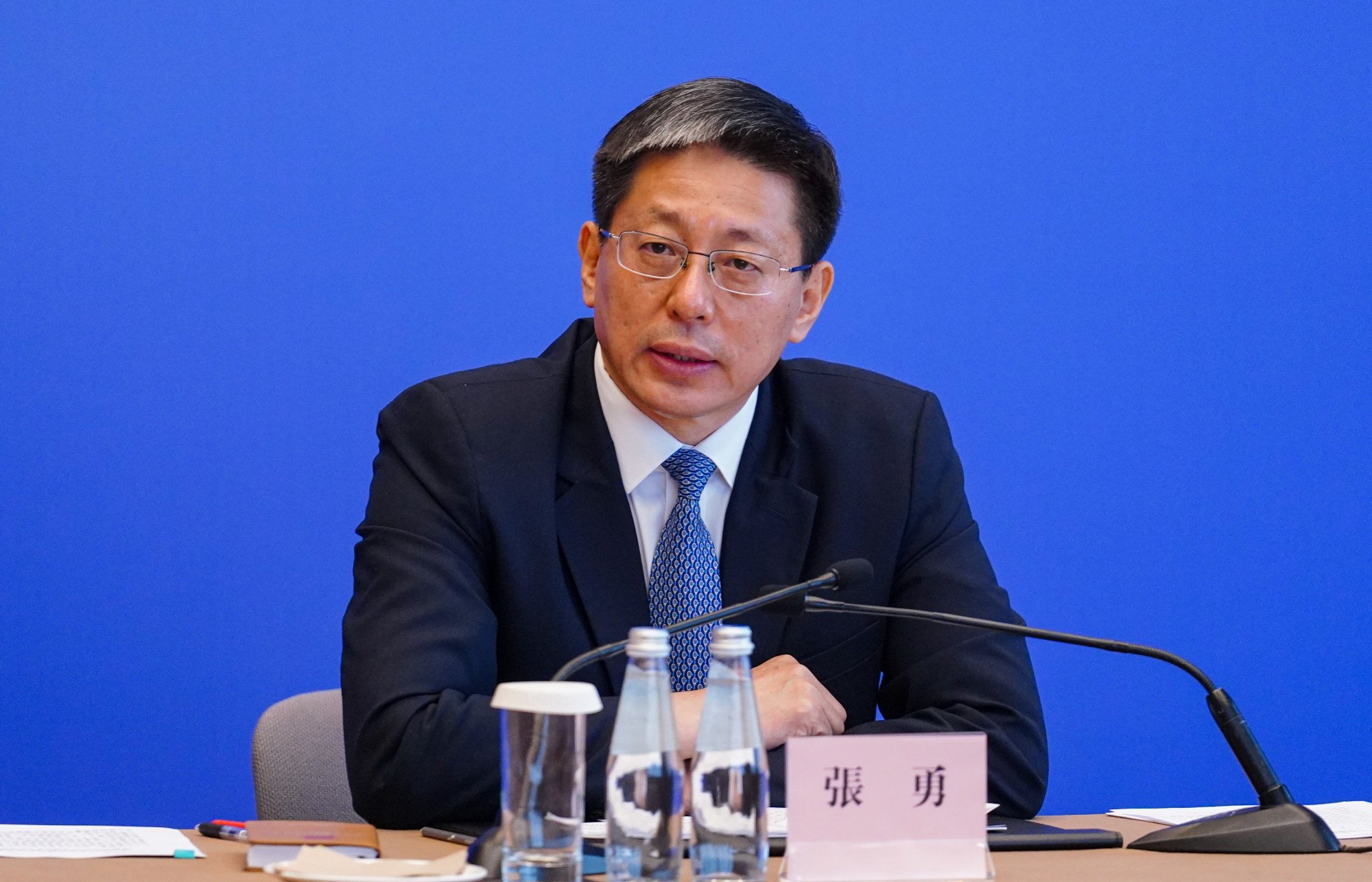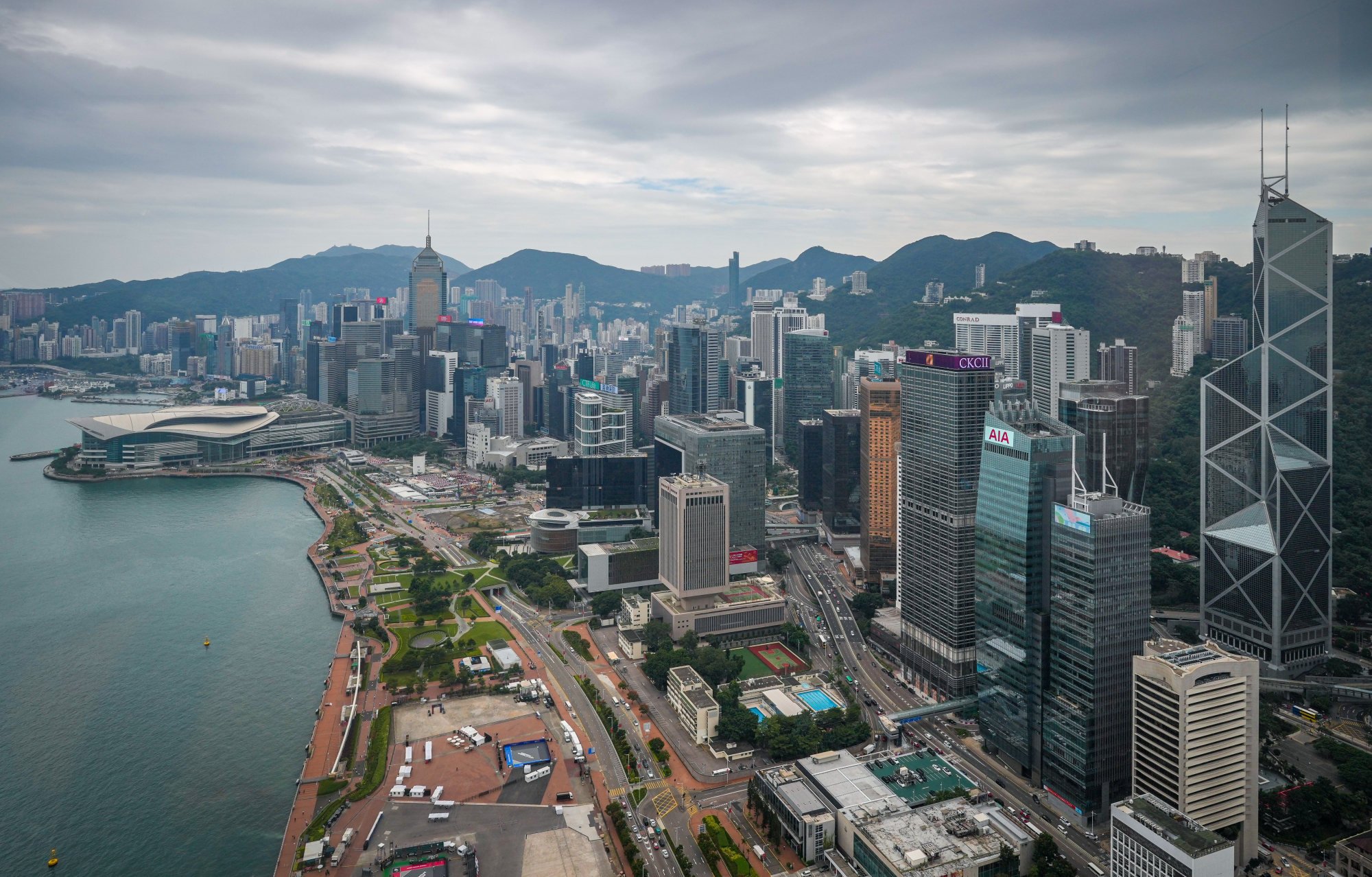A senior Beijing official’s remarks that the “Hong Kong people administering Hong Kong” guiding principle implies oversight by central authorities are a reminder that the city has never been an “independent political entity”, political analysts have said.
They also argued that Zhang Yong, vice-chairman of the Basic Law Committee of the National People’s Congress (NPC) Standing Committee, the country’s top legislative body, had decided to reinforce the message of Beijing’s jurisdiction over the city under the Basic Law on the heels of two national security trials which drew attacks from some Western countries.
Zhang said on Sunday that the principle of “Hong Kong people administering Hong Kong” did not mean the city could only be administered by its people themselves.
Do you have questions about the biggest topics and trends from around the world? Get the answers with SCMP Knowledge, our new platform of curated content with explainers, FAQs, analyses and infographics brought to you by our award-winning team.
“This is not entirely true,” he told a legal seminar. “Of course, the central government also must administer Hong Kong. Otherwise, where does the Basic Law come from?”
Article 22 of the Basic Law, the city’s mini-constitution, states that “no department of the central people’s government and no province, autonomous region, or municipality directly under the central government” shall interfere in Hong Kong affairs.
Zhang, who also serves as deputy director of the Legislative Affairs Commission of the standing committee, said the NPC “should” and “can” exercise its rights to administer Hong Kong similar to how “all other sovereign entities” do.
The Basic Law was adopted by the national legislature in 1990 before taking effect when Hong Kong returned to Chinese sovereignty in 1997.
The law outlines key concepts such as the “one country, two systems” governing principle, Hong Kong people administering Hong Kong and the city’s high degree of autonomy, guaranteeing its capitalist system will remain unchanged for 50 years.

Zhang said Hong Kong enjoyed a high degree of autonomy compared with cities in mainland China. He said the high degree of autonomy enjoyed by Hong Kong was real, which “required no quotation marks” when mentioning it.
He noted that laws passed in the Xinjiang Uygur autonomous region, in northwest mainland China, required approval from the central government, whereas legislation introduced by the Legislative Council took effect immediately.
Lau Siu-kai, a consultant with the Chinese Association of Hong Kong and Macau Studies, a semi-official think tank, said Zhang’s interpretation was a stern reminder to Western countries whose criticism of the city often stemmed from the misconception that it was an “independent political entity”.
The political analyst was referring to the backlash against city authorities over two national security trials involving 47 opposition activists and former newspaper owner Jimmy Lai Chee-ying.
“[Zhang] aimed to set the record straight for Western politicians and locals influenced by external forces that Hong Kong’s governance, in a broad sense, is not solely domestic affairs, and the local government’s authority to rule is granted by Beijing,” Lau said.
“Beijing has now become increasingly proactive in exercising its ‘comprehensive jurisdiction’ over the territory amid ongoing external interference.”
The concept of comprehensive jurisdiction is not mentioned in the Basic Law, but first appeared in a white paper published by the State Council in 2014, the same year Hong Kong’s Occupy movement took to the streets.
Lau said Zhang’s remarks on Sunday aligned with Beijing’s position, referencing the “second government” concept coined by Cao Erbao, the former director of the liaison office’s research department, in 2008.
Cao at the time said the city should be ruled by two entities – a local pro-establishment body and “a team of central and mainland authorities carrying out Hong Kong work”.

Zhang’s speech on Sunday was delivered to mark Constitution Day on December 4, which celebrates the anniversary of the adoption of the Constitution of the People’s Republic of China.
Western governments and human rights groups have slammed Hong Kong authorities over jail sentences handed down to 45 of the 47 activists involved in the city’s largest national security trial to date.
Some critics argued the penalties reflected a rapid decline in Hong Kong’s civil liberties and judicial independence.
Ahead of his US presidential election win earlier this month, Donald Trump vowed to negotiate the release of Lai, founder of the now-defunct Apple Daily.
Lai, who is currently testifying in his national security trial, earlier pleaded not guilty to two conspiracy charges of collusion with foreign forces and another charge of conspiracy to publish seditious material.
Veteran China watcher Johnny Lau Yui-siu said Zhang’s message came in response to the “turbulence” caused by Western critics targeting Hong Kong’s human rights situation.
“Are foreign countries instigating anything to incite instability? This possibility must be in Beijing’s mind. That is why officials are eager to reinforce the narratives,” Lau said.
“Vertical governance will continue, with Beijing taking a more hands-on approach to improve governance of Hong Kong. Foreign powers will closely monitor if there is still domestic opposition in China’s handling of its issues concerning Hong Kong.”
More from South China Morning Post:
- Hong Kong 47: Beijing slams West over ‘hypocritical double standards’
- Beijing slams Western threats of sanctions over jailing of 45 activists in Hong Kong
For the latest news from the South China Morning Post download our mobile app. Copyright 2024.





